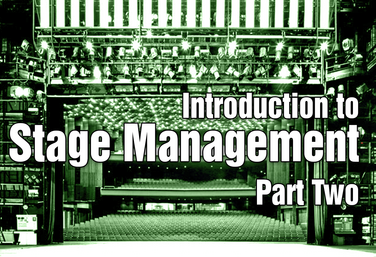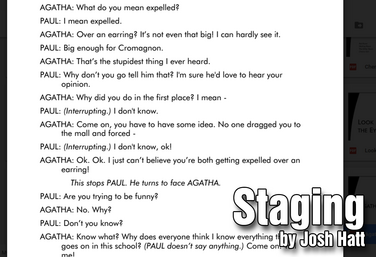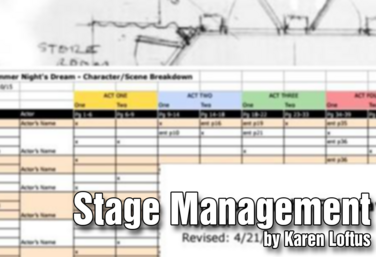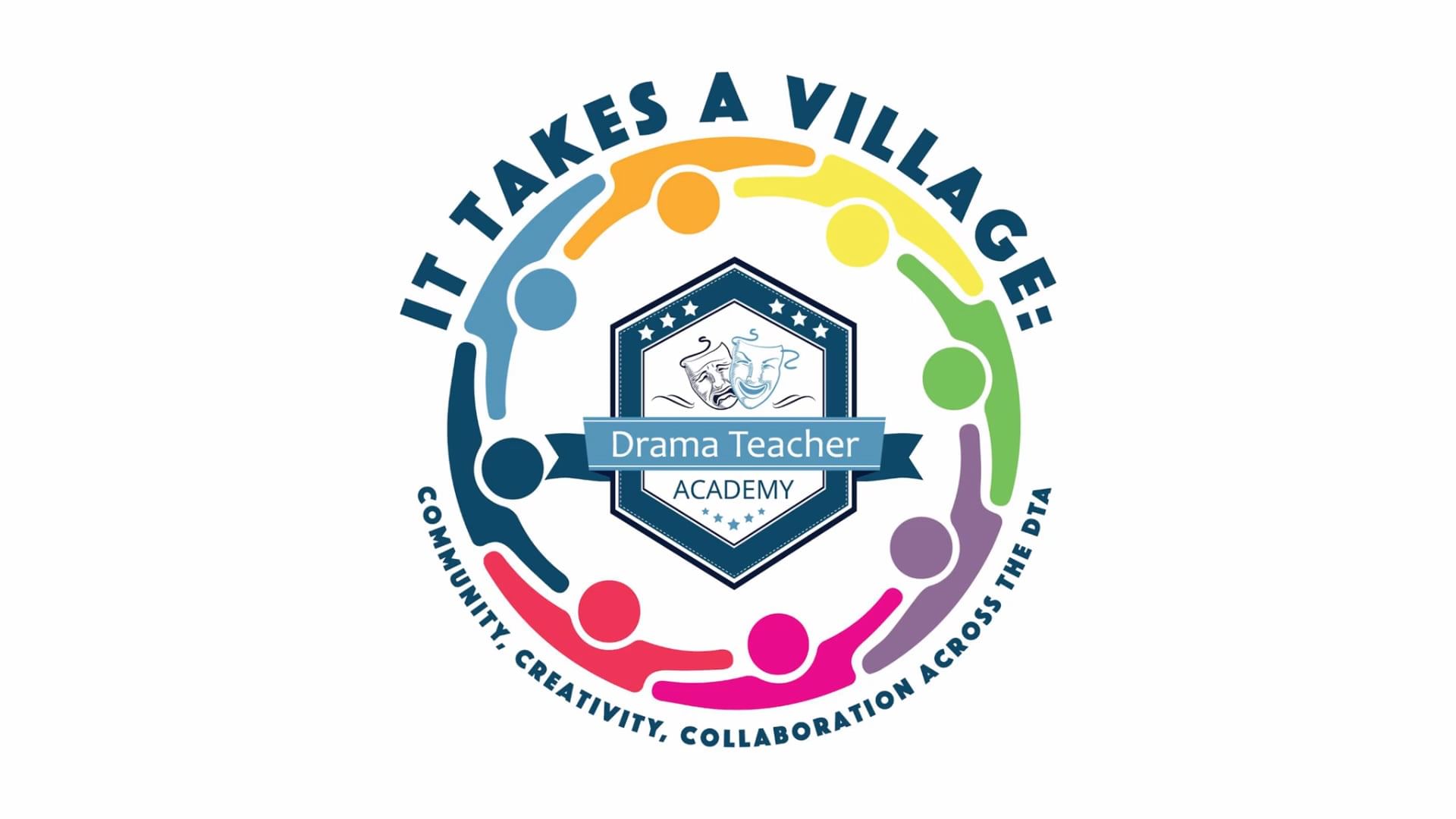Courses

Introduction to Stage Management Part Two
by Karen Loftus
Units

Staging
by Josh Hatt

Stage Management
by Karen Loftus
Lesson Plans
Stage Management: Know the Details
by Anna Porter
Stage Managers in Rehearsal
by Karen Loftus
Properties & Prop Design
by Karen Loftus
Creating Ambiance
by Holly Beardsley
Stage Management Calls Game
by Karen Loftus
Technical Theatre Performance Challenge
by Kerry Hishon
Running List Exercise
by Kerry Hishon
Same Show, Different Stages
by Kerry Hishon
Resources
Stage Management Staff Breakdown

Creative Staging Part 1
